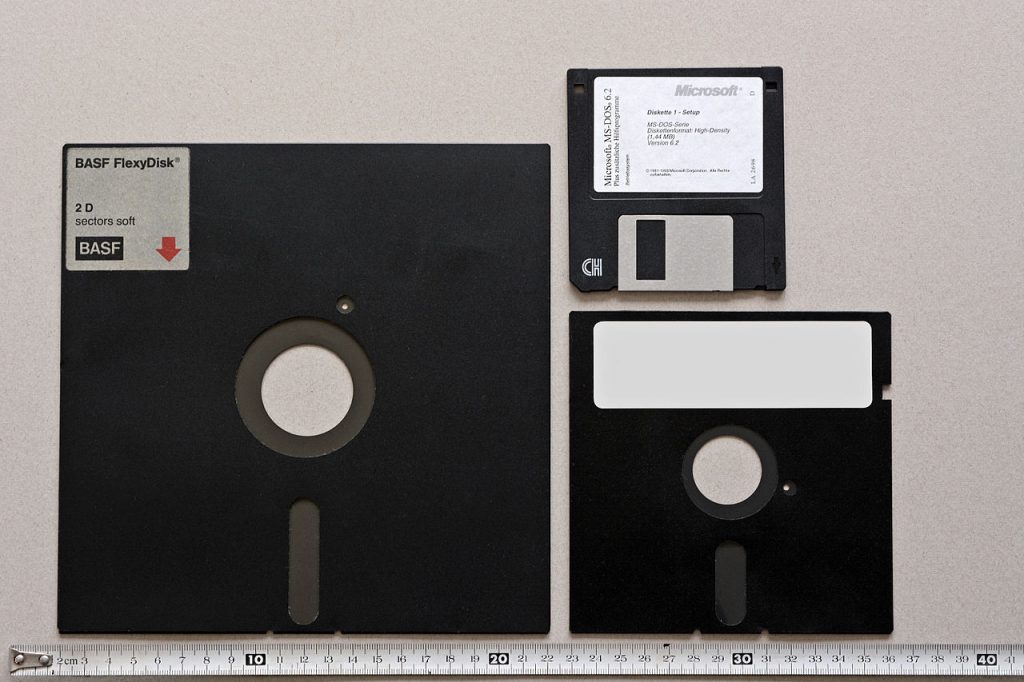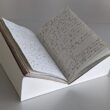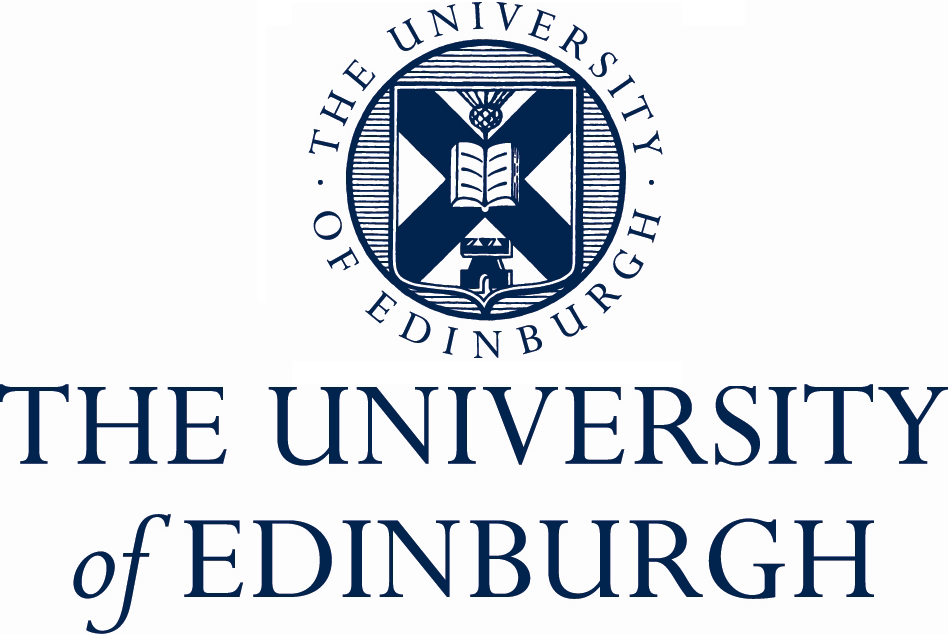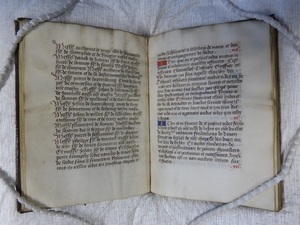Home University of Edinburgh Library Essentials
April 6, 2025
Staff Scholarship Scheme funds Digital Preservation course
Posted on May 23, 2016 | in Library, Library & University Collections, Research & Learning Services | by Gavin Willshaw
Three generations of floppy disk. By Hubert Berberich (HubiB) – Own work, Public Domain, https://commons.wikimedia.org/w/index.php?curid=27217977
Last year I completed the Centre for Archive and Information Studies (CAIS) course on the Management and Preservation of Digital Records. The module, which is one of several Masters-level CPD courses available, was fully funded by the University of Edinburgh’s staff scholarship scheme and offers a detailed overview of the diverse and challenging area of Digital Preservation.
As the Digital Curator at the University Library, it’s important that I have a broad and in-depth understanding of the issues surrounding the long-term preservation of digital material: if we are to digitise and make available our unique heritage collections, it is vital that they are stored securely. The Centre for Research Collections’ project to develop a Digital Strong Room, which adheres to international standards and uses open source solutions, will provide the University with a platform for the long-term preservation of its important digital cultural collections.
I had already completed the three-day Digital Preservation Training Programme run by the University of London Computer Centre (as-well as their one-day Web Archiving 101 workshop), but I felt it was important to undertake a formal qualification in this area in order to study it in more depth. The staff scholarship scheme usually only funds course offered by the University of Edinburgh but, because Edinburgh doesn’t currently offer a postgraduate module in Digital Preservation, I was able to apply to CAIS.
The course was a four-month distance-learning module, which I took alongside a cohort of students who were completing a full Master’s level course at the Centre. Each week we were provided with reading in a different area of Digital Preservation and we were assessed through four short tasks during the course and two longer written pieces at the end. I found this style of assessment really useful, particularly as Digital Preservation is very much a ‘building block’ field which requires mastery of one area before it is possible to move onto the next. I also found the types of task varied and interesting, and they each tested different skills and areas of knowledge. While one task required writing a short discussion piece about the authenticity of digital records compared to physical, another required using the PREMIS Data Dictionary to fill out a preservation metadata record for a digital object of our choosing (I chose this, from the Album Amicorum: http://images.is.ed.ac.uk/luna/servlet/s/24vvp6). One of the longer pieces required students to write a report analysing the training needs of an institution to enable them to deal with the challenges of Digital Preservation; this task really got me thinking about the wide range of skills required for an organisation to manage its digital collections effectively.
Overall, the course was comprehensive and went into a good level of detail about the different areas of Digital Preservation. It started with a brief introduction to key computer science concepts and terms, compared digital and analogue archiving techniques and then reviewed the current state of Digital Preservation theory and practice. We then looked at metadata standards, including PREMIS for preservation metadata, studied how organisations can validate their Digital Preservation activity, and concluded with a look at the preservation of more complex digital materials, such as databases, emails and social media.
It was a well-designed course and covered a large amount of material in a short time. I found it very useful to build on my existing Digital Preservation knowledge and, because the field is quite jargon and acronym heavy, I would strongly recommend anyone taking a course such as this to do some serious background reading in advance, perhaps starting with Marilyn Deegan and Simon Tanner’s introductory work Digital Preservation.
Thank you to the staff scholarship for funding this qualification – see their website for more information about how to apply: http://www.ed.ac.uk/student-funding/staff
Gavin Willshaw, Digital Curator, Library & University Collections
Collections
 Archival Provenance Project: Emily’s finds
My name is Emily, and I’m the second of the two archive interns that...
Archival Provenance Project: Emily’s finds
My name is Emily, and I’m the second of the two archive interns that...
 Archival Provenance Project: a glimpse into the university’s history through some of its oldest manuscripts
My name is Madeleine Reynolds, a fourth year PhD candidate in History of Art....
Archival Provenance Project: a glimpse into the university’s history through some of its oldest manuscripts
My name is Madeleine Reynolds, a fourth year PhD candidate in History of Art....
Projects
 Sustainable Exhibition Making: Recyclable Book Cradles
In this post, our Technician, Robyn Rogers, discusses the recyclable book cradles she has developed...
Sustainable Exhibition Making: Recyclable Book Cradles
In this post, our Technician, Robyn Rogers, discusses the recyclable book cradles she has developed...
 Giving Decorated Paper a Home … Rehousing Books and Paper Bindings
In the first post of this two part series, our Collection Care Technician, Robyn Rogers,...
Giving Decorated Paper a Home … Rehousing Books and Paper Bindings
In the first post of this two part series, our Collection Care Technician, Robyn Rogers,...





